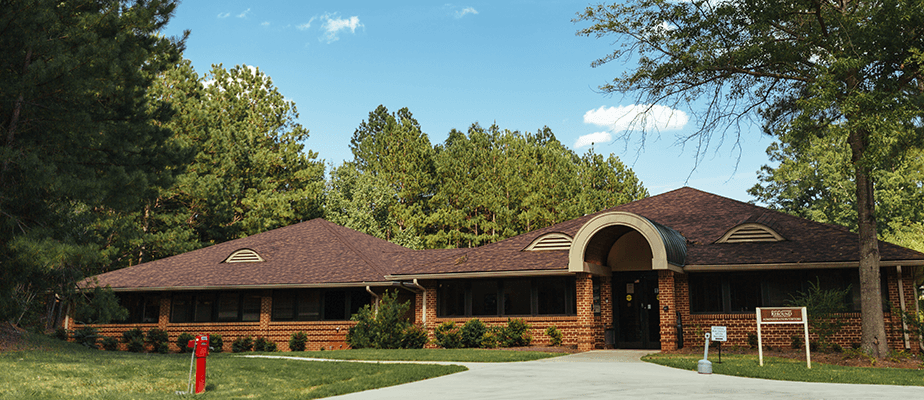Rebound Behavioral Health Hospital helps adults struggling with bipolar disorder build a strong foundation for long-term stability. Serving South Carolina, Rebound is a trusted mental health treatment center for adults in South Carolina.
More About Bipolar Disorder
Learn more about bipolar disorder and treatment at Rebound Behavioral Health in South Carolina
Bipolar disorder is a chronic mental health condition characterized by wild fluctuations in mood, cycling from depression to mania and back again. If you have bipolar disorder, you’re probably tired of the roller coaster of emotions. You may be sick of dealing with the aftermath of a particularly severe manic phase in which you engaged in abnormal and risky behaviors. Feelings of depression and anxiety can dominate the times you’re not manic, leaving you feeling overwhelmed and worthless. You may struggle to hold down a job and fight the urge to flee when your life circumstances become too overwhelming. You don’t have to live this way – with the right support, medications, therapy, and self-care, you can recover from bipolar disorder and lead a normal, stable life.
As one of the leading treatment centers for bipolar disorder in South Carolina, we offer a serene, inviting atmosphere that will allow you to work through your bipolar disorder and see life in a new light. We’ve helped countless men and women recover from bipolar disorder and we’re ready to help you. We offer compassionate care using only empirically validated treatments for people struggling with mental health disorders or chemical dependency. We offer several levels of care to best meet the needs of our clients. The treatment offered at our hospital for bipolar disorder has been designed for people who may need the structure and stabilization an inpatient hospital offers. For those who require a less acute level of care, our treatment center offers outpatient services for individuals who want to continue working on their recovery.
How to Help a Loved One
Helping a loved one get treatment for bipolar disorder
If you have a loved one who has been diagnosed with bipolar disorder, it can be extremely difficult because of the extreme manner in which their moods present themselves, oftentimes being completely unpredictable. You probably feel helpless to reach them while they’re in the middle of a manic or depressive cycle. Maybe you’ve tried to help them seek inpatient treatment before and failed. You don’t want to make things worse, and you probably don’t know exactly what to do. You may feel helpless and alone. Here are some tips for helping your loved one enter inpatient treatment for bipolar disorder:
Learn all you can: One of the best ways to help your loved one consider entering inpatient treatment is to research the available treatment options and self-care techniques. If your loved one needs a jump-start on recovery, an inpatient program is likely the best place to begin. The more you learn, the better you are able to act as their advocate.
Be patient: Getting better takes time, even if your loved one is committed to treatment. Do not expect a quick recovery or a permanent one; there may be some setbacks and challenges along the way. Managing bipolar disorder is a lifelong process.
Obtain a support system: Having a loved one who has bipolar disorder can be exhausting, especially if you are in a caregiver role. Make sure you’re seeking proper self-care and taking the time each day to relax and unwind. Find a local therapist and join support groups in your area to help you cope with the range of emotions you are most likely experiencing.
Why Consider Treatment
Why consider inpatient treatment for bipolar disorder at Rebound Behavioral Health in South Carolina
If not properly treated the symptoms of bipolar disorder can range from minor disturbances to major disruption in all areas of life. You may have spent your way into financial ruin and are unable to hold down a job causing you to be unable to pay the bills. You may have lost important social relationships in your life as your loved ones walked away, unable to see you hurting yourself. Emotional health and well being may have given way to focusing on getting through each day. You may have picked up a drug or alcohol addiction to help numb some of the symptoms of your bipolar disorder.You may feel alone, hopeless, and worthless.
The serene setting of our treatment center is ideal for people who are living with untreated bipolar disorder to begin the process of recovering. You’ll be able to create a treatment plan with a caring staff who will work with you to make sure all your needs are being met. Your medications will be adjusted to ensure you are using the right combinations of drugs to help keep the symptoms at bay and allow you to regain some control over your life.
Our Rehab Philosophy
Rebound Behavioral Health’s rehab philosophy
As the best treatment center in South Carolina for those with bipolar disorder, we’re proud to offer only scientifically-validated and empirically-supported treatments that are aimed at treating the whole person – mind, body, and soul. You’ll be an active participant in your treatment plan and the most important member of your treatment team as you bring your strengths and resiliency to your experience in our healing center. Our multidisciplinary team helps you focus and build upon the strengths you have within you to help you get through this challenging time and emerge the other side to lead a happy, productive, and fulfilling life.
Treatment Methods
Types of bipolar disorder treatment offered at Rebound Behavioral Health
When you come to us for care, you’ll first undergo a variety of assessments to allow us better insight into your challenges. Our medical assessment will determine if you’re struggling with any medical problems related to your risky behavior and let us know if you’re addicted to drugs or alcohol. The psychiatric evaluation will determine the severity of your symptoms and whether or not you’re facing a co-occurring disorder, such as anxiety. The results of these examinations will be used to help create an individualized plan of care.
Medication management is the cornerstone of bipolar disorder treatment at our hospital. There are a wide array of medications that can be used to help manage bipolar disorder, which include mood stabilizers, antidepressants, and anti-anxiety agents. You may also require medication to manage any co-occurring mental health disorders. The usage of medication will be determined by the treatment team.
Individual therapy can offer people who have bipolar disorder more insight about their disorder. Using a variety of techniques such as cognitive-behavioral therapy (CBT), we’ll work with you to correct any negative thought patterns and replace them with more positive ways of seeing the world. We’ll also discuss coping strategies, social skills development, and the importance of adhering to a medication schedule.
Group therapy is one of the primary therapeutic components offered at our bipolar disorder treatment center, as it allows you to work with others who are struggling with similar challenges in a safe, supportive environment. You’ll attend process-based and psycho-educational groups that cover a number of topics including anger management, stress reduction, and relapse prevention.
As a holistic treatment center, Rebound Behavioral Health Hospital is proud to offer a variety of experiential therapies to complement traditional therapeutic techniques. These include:
- Massage therapy
- Exercise therapy
- Activity therapy
- Relaxation therapy
- Music therapy
- Pet therapy
- Spiritual counseling
- A.A. and N.A. groups
Discharge & Continuing Care
Maintaining your mental health while coping with bipolar disorder
As your time for discharge draws close, you’ll meet with a discharge planner and your treatment team to determine the next best steps in your care. Many people opt to step down from our inpatient services into our outpatient services. This will allow you to slowly reintegrate back into your community while focusing on your recovery during the day. Other people may have made enough progress at our treatment center to be ready to return home with referrals to traditional outpatient therapy and community resources in their area.


















